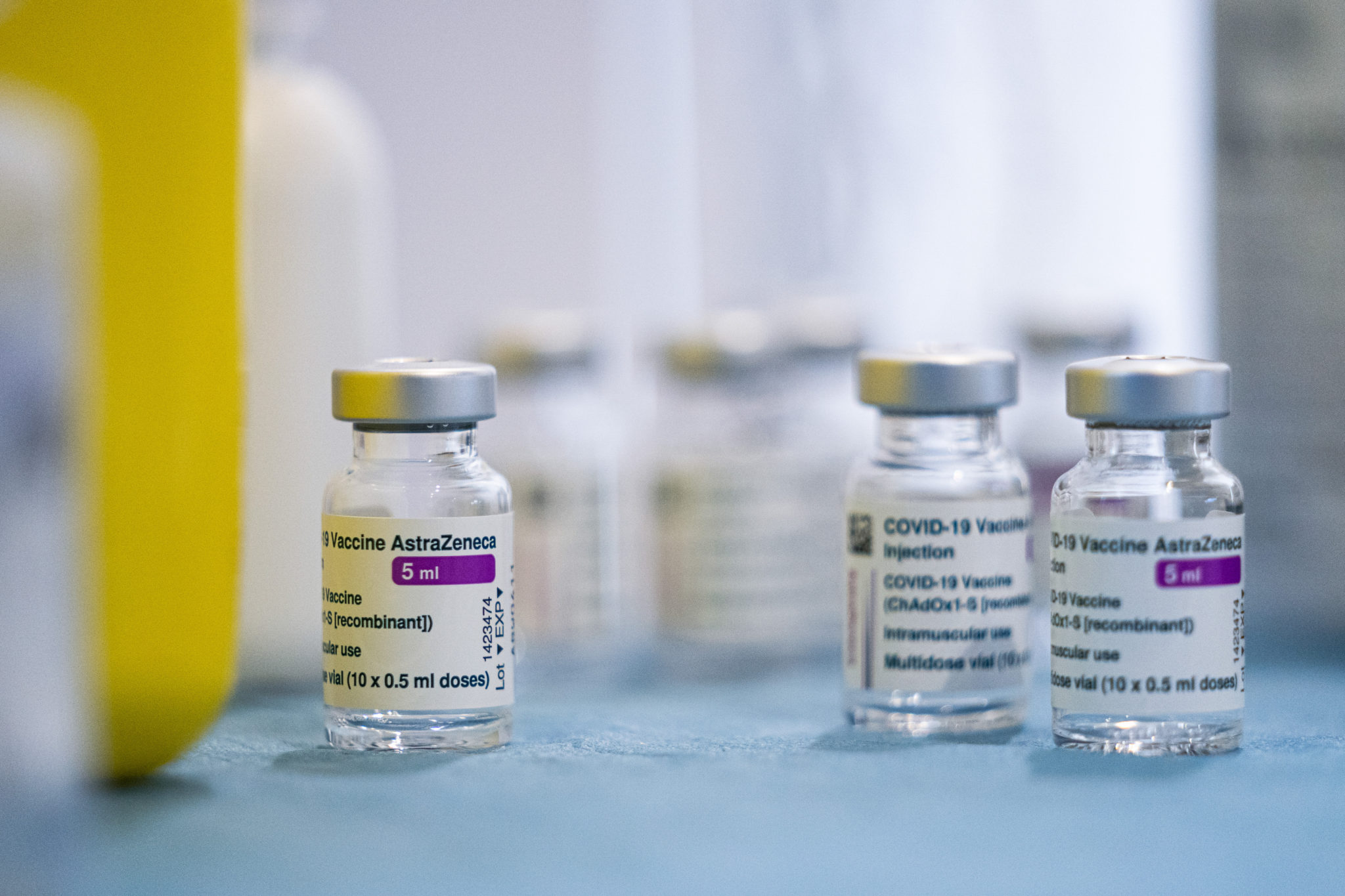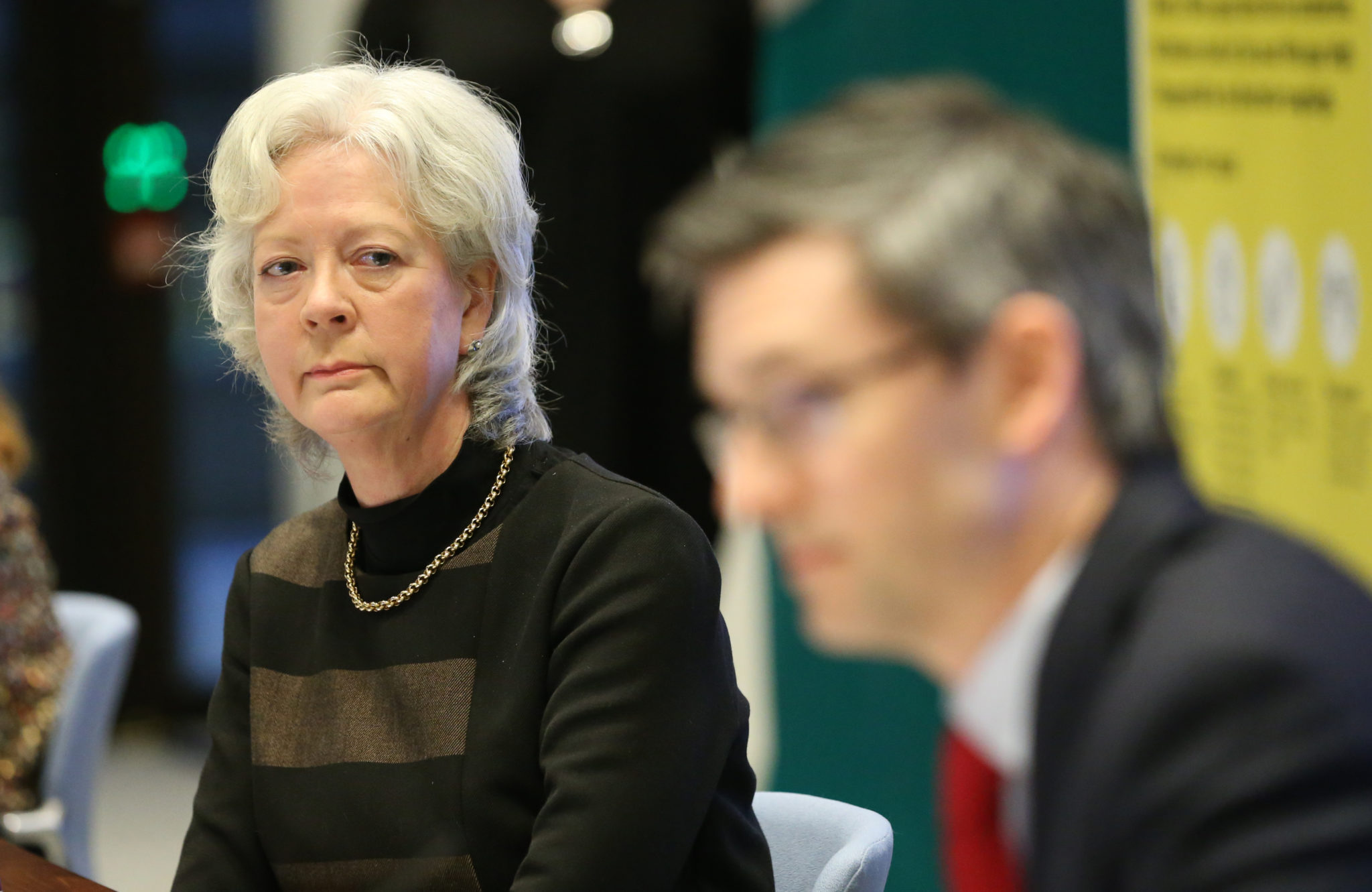One-in ten coronavirus patients end up with long-term symptoms, according to Professor Luke O’Neill.
On The Pat Kenny this morning, the Trinity immunology professor said the figures underline the need to get as many people vaccinated as quickly as possible.
He noted that the vaccine can also offer relief to people who are suffering long-COVID symptoms.
“There is a way to treat it now,” he said. “So, anybody who has had COVID should take the vaccine and if they have those long-COVID symptoms, they might begin to resolve more quickly after they have taken the vaccine.”
 AstraZeneca COVID-19 vaccines in Cornella, Spain, 07-04-2021. Image: Joan Gosa/Xinhua
AstraZeneca COVID-19 vaccines in Cornella, Spain, 07-04-2021. Image: Joan Gosa/XinhuaProfessor O’Neill said the new rules limiting the use of the AstraZeneca vaccine to people in their 60s are a “terrible shame.”
He said the Government should offer people the opportunity to sign a consent form showing they understand any risk associated with the jab and get on with the rollout.
He said it would be a 'very good idea' for Ireland to buy up unused doses from EU countries like Denmark that have paused the use of the vaccine – and reiterated his call for the country to move to a single-dose strategy.
“We should definitely use up all the vaccine supply,” he said. “We shouldn’t be keeping the second shot back, that is the really important thing.
“I will give you the numbers. AstraZeneca is 76% efficacious after one shot. Pfizer is 80% efficacious after one shot. Johnson & Johnson is 66% efficacious – and it is a one-shot vaccine.
“So, there is no reason now not to give all the vaccines out as one-shot and delay the gap then between the two shots. That is the important thing.”
 Professor Karina Butler, Chair of National Immunisation Advisory Committee (NIAC) at the Department of Health, 12-04-2021. Image: Sasko Lazarov/RollingNews
Professor Karina Butler, Chair of National Immunisation Advisory Committee (NIAC) at the Department of Health, 12-04-2021. Image: Sasko Lazarov/RollingNewsHe noted that the Johnson & Johnson vaccine is the same type of technology as AstraZeneca and warned that the National Immunisation Advisory Committee (NIAC) could soon find itself under pressure to treat both vaccines in the same way.
“The European Medicines Agency has approved both of these vaccines remember,” he said.
“These adverse effects have come up, which happens with any new product. They do have adverse events – especially when you are using them on millions of people.
“Normally that goes on label on product, you might give guidance to doctors and you keep using it.”
Long-COVID
Professor O’Neill said the huge amount of COVID cases around the world has allowed researchers to build up a “really good picture” of what is happening with long-COVID.
“At least 10% will have some kind of long-COVID and it is not just things like fatigue or sleep disturbance,” he said.
“It is also breathing difficulties which means your lungs actually have been injured physically. So, you might have trouble breathing if you walk up the stairs say for example. With a bit of exertion people get breathless.
“They reckon it is about 10% overall but it will vary between age groups. It is more common in women than men for instance, which is one of the slight differences but certainly at least 10% will have a significant symptom months after they have cleared the infection.”
Hospital
He said the figures are far higher among patients who are admitted to hospital while battling the disease.
“If you have been in hospital, 87% of people will have a long-term symptom post-discharge from hospital,” he said.
“These are relatively serious things, breathlessness and maybe even some heart problems, so, there is no doubt this virus does cause harm to our bodies – in a certain number of people of course, not everybody – and then there are more long-term symptoms.
“So again, it re-emphasises this is serious disease.”








